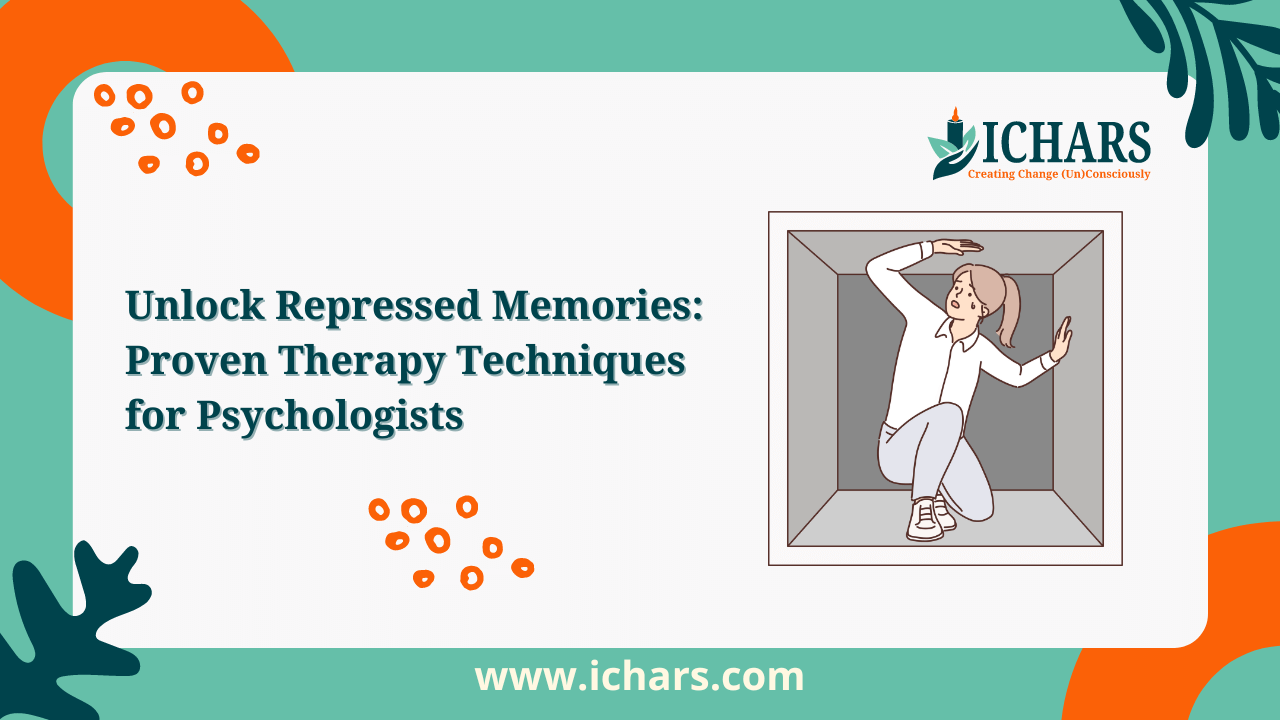As a practicing psychologist, do you often encounter clients who seem stuck, unable to progress despite numerous sessions?
Have you ever wondered if there are deep-seated issues lurking beneath their conscious awareness, obstructing their path to healing?
Addressing repressed memories can be one of the most challenging yet crucial aspects of therapy. How can you effectively explore and address these hidden memories to facilitate true transformation for your clients?
In this comprehensive article, we delve into the therapeutic competency of exploring and addressing memories that are repressed, providing you with insights, strategies, and tools to enhance your practice.
Understanding Repressed or Unconscious Memories: The Hidden Obstacles

Repressed memories are unconscious blockages that can profoundly influence an individual’s behaviour, emotions, and thoughts. Often, these memories are the result of trauma or distressing experiences that the mind has pushed out of conscious awareness to protect the individual from emotional pain.
However, these memories can manifest as anxiety, depression, or various other psychological issues, complicating the therapeutic process.
The Importance of Recognizing Repressed Memories
Recognizing the presence of memories that are repressed is the first step toward effective intervention. Signs that your client may be dealing with repressed or unconscious memories include:
- Unexplained emotional outbursts or irrational fears
- Inconsistent or fragmented narratives about past experiences
- Psychosomatic symptoms without a clear medical basis
- Persistent negative patterns despite cognitive understanding and efforts to change
Understanding these signs can help you pinpoint areas that require deeper exploration and specialized techniques.
Techniques for Exploring Repressed Memories

Effective exploration of these memories requires a delicate balance of empathy, patience, and specialized therapeutic techniques. Here are some proven methods to help you navigate this complex terrain:
Hypnotic Regression Therapy
Hypnotic regression therapy, a core component of the Cognitive Hypnotic Psychotherapy Approach, involves guiding clients into a relaxed, trance-like state where they can access subconscious memories. This technique can be particularly effective in uncovering repressed memories and understanding their impact on current behaviour.
Steps to Implement Hypnotic Regression:
- Induction: Guide your client into a deeply relaxed state using progressive relaxation techniques.
- Exploration: Use gentle questioning to explore past experiences, allowing memories to surface naturally.
- Processing: Once memories emerge, help your client process and reframe these experiences to reduce their emotional impact.
NLP Timeline Therapy
NLP Timeline Therapy, another integral part of the Cognitive Hypnotic Psychotherapy Approach, allows clients to visualize their life events on a timeline, helping to identify and reframe negative emotions associated with past experiences. This technique can be useful in accessing repressed memories and transforming their emotional charge.
Key Steps in Timeline Therapy:
- Elicit the Timeline: Have your client visualize their life as a timeline, marking significant events.
- Identify Negative Emotions: Guide your client to locate points on the timeline where negative emotions are stored.
- Reframe and Release: Assist your client in reframing these events, releasing the negative emotions, and replacing them with empowering beliefs.
Inner Child Healing
Inner Child Healing focuses on connecting with and healing the part of oneself that holds onto childhood experiences and emotions. This technique can be instrumental in resolving issues that stem from repressed memories of early life events.
Ho’oponopono
Ho’oponopono, a Hawaiian practice of reconciliation and forgiveness, involves repeating key phrases to release negative emotions and foster healing.
Continuous Professional Development
Stay updated with the latest research and advancements in therapeutic techniques related to unconscious memories. Engage in ongoing training and workshops to enhance your skills and competency in this area. The Cognitive Hypnotic Psychotherapy Program offers comprehensive training that integrates multiple approaches to psychotherapy, providing a solid foundation for addressing memories that are repressed effectively.
Conclusion: Enhancing Your Therapeutic Practice
Exploring and addressing repressed memories is a vital competency for psychologists, enabling deeper healing and transformation for your clients. By mastering techniques such as Hypnotic Regression Therapy, NLP Timeline Therapy, Inner Child Healing, and Ho’oponopono, you can unlock the potential for profound change and growth. Remember to uphold ethical standards and continually seek professional development to provide the best care for your clients.
By integrating these approaches into your practice, you can overcome the challenges posed by repressed memories, fostering a therapeutic environment where clients can truly heal and thrive. Consider attending specialized workshops or enrolling in advanced training programs like the Cognitive Hypnotic Psychotherapy Program to further enhance your expertise in this critical area.

